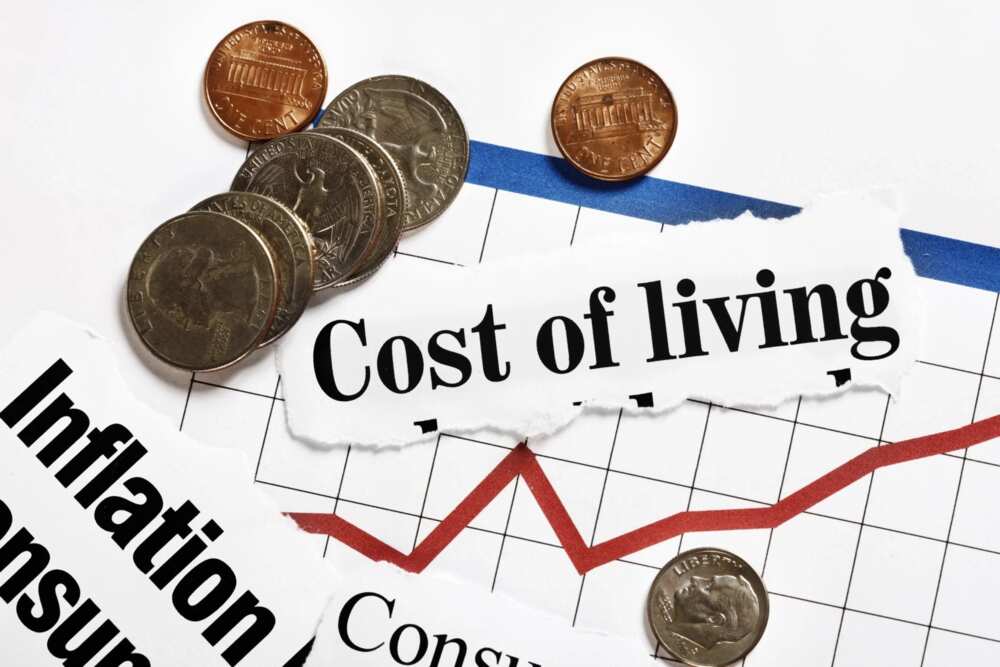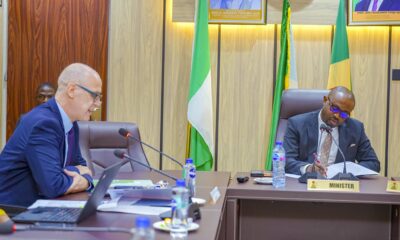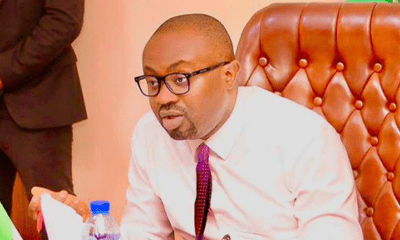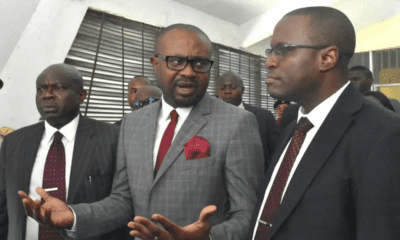Editorial
Thumbs up to Tunji-Ojo for smooth Passport application, issuance mandate
The nightmare surrounding the Nigerian international Passport application is gradually fading out with the drastic measures taken by the President Bola Tinubu’s adminstration in appointing a young vibrant and workaholic minister, Olubunmi Tunji-Ojo the headship of that sector.
Prior to this administration, some cabals in connivance with top personnel from the Nigerian Immigration Service (NIS) had hijacked the process to make brisk business by extorting citizens that apply for passports.
So, possessing a Nigerian passport is a huge privilege for the citizens, and whatever reason that impedes obtainment of the national passport violates that right. Notwithstanding that there have been some challenges regarding the processing of the Nigerian passport; it is gratifying to state, however, that the narratives are fast changing positively.
Though the Nigeria Immigration Service (NIS), whose mandate it is to make passports available to Nigerians, acknowledges the pains and empathises with citizens, home and in the diaspora for the unintentional stress they encountered while processing their passports in recent times, each time Nigerians express their anger and frustration on the government over the inability of the passport offices to process their passports as quickly as required.
As part of a measure agenda, the Minister set a two-week timeline for the processing of passport applications, saying the era of waiting for months is over.
While reviewing his directive to the Nigeria Immigration Service to clear over 204,000 backlog of passport applications, he said, “We want to ensure that nobody waits for more than two weeks to get their passports.”
According to him, “As at October 1, we had cleared all the 204,332 backlogs and from the records produced by NIS, the number of passports already collected is 91,981. Outstanding but available is 112,351. We are pleading with Nigerians to please go and collect their passports.”
The minister warned Nigerians applying for passports application not to give money to anybody, and directed them for passport to lodge their complaints via the following; 0802 375 3414, preferably SMs, if there is any passport office where they have done the capturing and are denied their passports.
According to him, while procurement of visas is a privilege, acquiring international passports is a right. He also expressed the commitment of President Bola Tinubu to not increase the cost of passport application despite the foreign exchange volatility.
The minister further said he has perused all the contracts and agreements the ministry and its agencies had entered into with service providers, saying in the next couple of months, passport applicants would be able to upload their passport photographs via the immigration portal, rather than going to passport offices for such capture.
Tunji-Ojo revealed that applicants would only be required to visit the passport offices for their biometrics enrolment.
He noted that hopefully by December, people will not need to go to passport offices.
“People will be able to upload their passport photographs online with specifications. When you apply for a visa, you do that and we are advancing in that line.
“Also, your supporting documents should be uploaded online so that when you go to the passport office, it will just be for biometrics and within five minutes you have left there. We don’t want the past situation whereby people spend the whole day at the passport offices. So instead of the offices capturing maybe 400 a day, they will be able to accommodate more people,” he said.
“These are some of the innovations we are bringing. Even though we know what the exchange rate is, we are not increasing passport fees. The government of President Tinubu understands the needs of the people. As a person, I do not want anybody to go and stay in a passport office for more than 10 minutes.”
It important to applaud the Minister for succeeding to uproot the fraudulent activities in the issuing of international passports which was unable to be executed by the previous Government.
It is appropriate to put the issues in proper context and understand how the government through formulation and implementation of strategic reforms by the NIS in conjunction with the ministry of interior is bringing that commitment to life.
The issues with passport administration are way beyond what anyone could limit to the prism of undue politics game-playing. The destiny of Nigerians who need the passport as a requisite document to travel outside the country for whatever genuine purpose, is much more important at this point. The course of evolving a smooth passport administration and efficient migration management system for the country is certainly work-in-progress.
The Minister’s new team in collaboration with NIS is demonstrating commitment to the reforms of the immigration sector, especially passport processing, and already yielding positive results. With the marching order from the minister all relevant stakeholders should support the current government to clean the mess masquerading application and issuance of passports to Nigerian citizens.
Editorial
Nigerians groan under high cost of living


Barely fourteen days to the first year anniversary of this federal government, Nigerians have continued to groan under high cost of living, amidst a catalogue of failed promises. Despite its chants of ‘Renewed Hope Agenda,’ a cup of garri/rice has since gone out of the reach of an average Nigerian. There is a continuous hike in fuel and other petroleum products. Transportation fares, local, inter-state or international are a no-go area. Nigerians have lost count of pledged dates for the commencement of operations or production of our refineries, especially Port Harcourt Refinery.
Most citizens have lost hope in the current political leadership in the country. Fuel today is being sold at between N800 to N950 per litre and still counting. A bottle of kerosene is about N2,000 and this an essential product being used by almost 90 percent of the population, especially the lower cadre. In the past, the colour of kerosene used to be like spring water from a rock, but today the product is sullied with impurities, its colour of kerosene almost like that of groundnut oil. Yet, it remains scarce and costly. What a country.
Nigeria is possibly the only country with abundant crude oil deposits that prefers to throw away the crude at giveaway price to other countries in the name of exportation, only to buy the refined products from the crude at exorbitant prices, in the name of importation. The first refinery in Port Harcourt was built about nine years after oil was discovered in commercial quantity in Oloibiri in 1956 in the present day Bayelsa State. And up till today there is no intentional attempt to rebuild it, or be religious in maintaining it.
The Naira debuted as the national currency of Nigeria, at 75K to $1, but today N1,500 is exchanging $1. Yet, we are ranked among the highest producers of oil and gas in the comity of nations. The unadulterated truth is this: Nigerians are suffering in the midst of plenty which should not be the case.
The poor leadership of the old brigade, who have held sway since independence, should leave the stage for younger generation. The current President of France, Emmanuel Macro is below forty years. The recent election in Senegal produced a 44-year-old man as president. Whether we like it or not, once a person passes retirement age of 60, his mental faculty starts dropping.
Inflation rate is now 33-35% in the country. Unemployment rate is soaring and the Federal Government had the gut to propose N48,000 as minimum wage for Nigerian workers, possibly as part of the ‘renewed hope agenda.’ This is as against N860,000 being proposed by the organised labour, comprising the Nigeria Labour Congress (NLC) and Trade Union Congress(TUC).
We are not surprised therefore when the organised labour walked out of the negotiation table and handed down a 14-day ultimatum to the Federal Government to think right.
We hope the federal government will really do all it needs to do to avoid another showdown with Nigerian workers who are like wounded lions and have been patient enough with the economic torture currently being experienced by workers in the country. We hope and pray that the tail of a sleeping tiger, will not be unnecessarily pulled. It could amount to unpleasant consequences. The government should fulfil its campaign promises and ensure peace and tranquility throughout the nation.
Editorial
Minimum wage Saga: FG, let the people go…


For years, the narrative has been the same — the economy withers and the common man cries out for reprieve, only to be met with an endless array of impediments. When it is time to intercede for the poor, Nigerians are met with pointless bureaucracy and palliatives. Foreign aid is rendered ineffectual thanks to the gauze-hand of leaders, through which it all slips through into an oblivion of their own invention.
In April 2024, the headline inflation rate rose to 33.69 percent, up from 33.20 percent in March 2024, marking an increase of 0.49 percent points according to the Nigeria Bureau of Statistics (NBS). Yet, to raise the minimum wage to a level that will help beat back hunger in the poorest families has become a problem for the government.
Per the International Monetary Fund, IMF, a determined and well-sequenced implementation of government’s policy intentions would pave the way for faster, more inclusive, resilient growth in Nigeria. Without reforms — such as raising the minimum wage — to enhance the business environment, improve security, implement key governance measures, develop human capital, boost agricultural productivity, Nigeria’s growth potential will never leave the realm of imagination.
“These reforms are crucial to boost investor confidence, unlock Nigeria’s growth potential and diversify the economy, and address food insecurity, and underpin sustainable job creation,” IMF noted in its recent report, adding that over the last decade, limited reforms, security challenges, weak growth and now high inflation had worsened poverty and food insecurity in Nigeria.
“While Nigeria swiftly exited the COVID-19 recession, per-capita income has stagnated. Real Gross Domestic Product (GDP) growth slowed to 2.9 percent in 2023, with weak agriculture and trade, and in spite of the improvement in oil production and financial services.
“Growth is projected at 3.3 per cent for 2024 as both oil and agriculture outputs are expected to improve with better security. The financial sector has remained stable, in spite of heightened risks. Food insecurity could worsen with further adverse shocks to agriculture or global food prices. Adverse shocks to oil production or prices would hit growth, the fiscal and external position, and exacerbate inflationary and exchange rate pressures,” the IMF said.
Yet, on Wednesday the pattern continued. Negotiations reached a deadlock due to the government’s perceived unwillingness to engage in fair discussions with Nigerian workers. The NLC National President, Joe Ajaero, in a sense is right to say that the government’s proposal of N48,000 as the new minimum wage is an insult to Nigerian workers.
It is no surprise that the labour unions are demanding a higher minimum wage to reflect the current economic realities and alleviate the suffering of Nigerian workers. The stalemate in negotiations may lead to industrial action, which could have far-reaching consequences for the economy.
Many labour in vain for decades for peanuts, only to be denied their pensions in old age. Of course, the Nigerian worker will down his tools in the face of great poverty, and seeming apathy from the government. The relationship between wage rate and employment is well established. Most revolutions throughout the world are dependent on the satiation of the labour force. The Federal Government should maintain an atmosphere of charity and responsibility. Like the Israelite Moses said millennial ago, let our people go.
Editorial
Inflation as major threat to life security


Millions of Nigerians are groaning because of the devastating inflationary pressure that is making it impossible for many to consume the minimum calories required for a healthy living.
It is known that Nigeria’s macroeconomic environment has become very harsh in its diminutive impact on the purchasing power at the disposal of the citizenry.
Many cannot also conveniently afford to transport themselves to their workplace or move around for routine activities.
Meanwhile, the price of other payment obligations for services such as house rents, school fees, utilities (including cable television), health and recreation services are rising on a daily basis.
This shows that the quality of life enjoyed by Nigerians is deteriorating as poverty becomes more pervasive and endemic.
According to official statistics, the November inflation rate was 14.89 percent and it is fast heading towards the 15 percent mark.
Meanwhile, the Rural inflationary pressure is also climbing as the rate climbed to 12.28 percent in July even when the price of Premium Motor Spirit and electricity tariff had not been hiked. Prices are just rising freely.
This applies to production inputs (except labour), consumer durable, agricultural products as well as services.
This unfortunately is the case irrespective of the basket of goods one uses as a measure outside the standard yardstick.
A close look at the policy framework of the government shows that the recent surge in general price level is not unconnected with structural bottlenecks, fiscal and monetary policies, deregulation, and trade policies as well as inefficiency on the part of regulatory agencies.
The government has for too long paid lip service towards unbundling of the shackles of growth and development such as poor budgetary implementation on capital projects, outdated laws and a toxic business environment that constrain the economy.
This has indeed, slowed down economic growth and resulted in shortage of goods and services and their attendant impact on inflation.
The government seems to be heating up the system by keeping its spending open-ended even as it cries of inadequacy of revenue to finance its expenditure obligations.
The disconnect between recurrent account, capital account and public debt operations is certainly having a destabilising effect on public finance operations of the country.
This has given rise to fiscal domination that describes the aggregative impact of the uncoordinated expenditure activities of all the governments in our strange three-tier federal arrangement.
It also appears that the Central Bank is losing sight of its inflation-targeting monetary policy which has been on its front burner for more than two decades now.
This is certainly not what the nation needs now when virtually all the macroeconomic variables are in disarray.
Here, attention of CBN must be called to its Naira management policy especially as it affects the regimented devaluation and depreciation which impact heavily on the domestic and external value of the currency.
The external value requires attention considering that the Nigerian economy carries a monolithic production base and import orientation.
The gross loss in the value of Naira is having a horrible impact on the life of Nigerians as misery and hopelessness characterise the daily songs of the lower income strata and whatever is left of the middle class.
It must be pointed out also that the government policy on agriculture in general and rice production appears to suffer a backlash.
Whereas local production has increased appreciably the farmers and agricultural marketers are engaging in exploitative pricing practice.
They simply jack up their prices arbitrarily. This is particularly the case with respect to rice where the price of the local varieties is at par with the foreign brands.
The recent increase in the price of premium motor spirit and electricity tariff have surely added more salt to the injury.
These two products are directly tied to production and distribution of goods and services and as such raising their individual prices simply translates to increasing the price of everything that is bought and sold in the open and underground economies.
Unfortunately, all these are happening when the nominal income of the average citizen has either stagnated or declined as the minimum wage has not been paid by many states of the federation.
The same is characterised by controversy in those states and some federal agencies that have implemented the new salary regime.
-
Finance4 months ago
Court orders Sen. Victor Umeh to repay N136m bank debt to AMCON
-



 Abuja Update3 months ago
Abuja Update3 months agoUNDP, FG partnership needed to achieve inclusion, equity- Minister
-
capital market2 years ago
Rt.briscoe, FBNH, Others halts negative performance of stock market
-
Abuja Update2 months ago
Banks drive stock market performance with N147bn gain
-



 Health1 month ago
Health1 month agoCapacity training will reduce migration of health workers- NPHCDA
-
Submission Guidelines4 months ago
CALL FOR SUBMISSIONS: POETRY COLUMN-NND
-



 Business4 weeks ago
Business4 weeks agoTingo Group unveils Tingo Electric, Tingo Cola drink at Lagos launch
-
News4 months ago
Oil thieves sponsoring malicious media campaign against Navy – Spokesman














